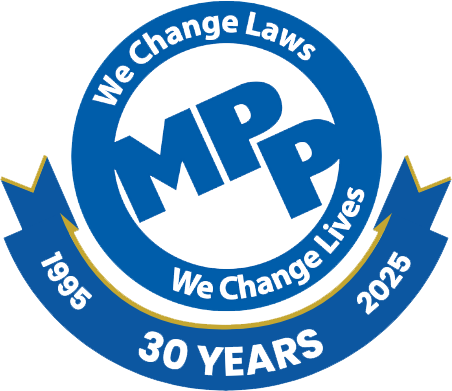- Take Action: Urge your state legislators to support a compassionate medical cannabis program!
Press Release
Colorado Government Finds Teen Marijuana Use Has NOT Increased Since Legalization

FOR IMMEDIATE RELEASE
Monday, June 20, 2016
Contact: Violet Cavendish
vcavendish@mpp.org
Colorado Officials Release New Survey Data Showing Teen Marijuana Use Has NOT Increased Since Marijuana Became Legal for Adults; Rate of Use Among Colorado High School Students is LOWER Than National Average
The rate of marijuana use among Colorado high school students was slightly lower in 2015 than in 2011, the year before Amendment 64 was enacted, according to what state officials call the ‘only comprehensive survey on the health, well-being and resiliency of young people in Colorado’
DENVER — Rates of marijuana use among Colorado teens have NOT increased since the state made marijuana legal for adults, according to results of a statewide survey released Monday by the Colorado Department of Public Health and Environment (CDPHE). Rates of current and lifetime marijuana use among Colorado teens also continue to be lower than the national average.
“The survey shows marijuana use has not increased since legalization,” according to a CDPHE press release.
The biannual Healthy Kids Colorado Survey (HKCS) found that 21.2% of high school students in Colorado reported using marijuana within the past 30 days in 2015, down slightly from 22% in 2011, the year before Amendment 64 was approved and enacted, and 24.8% in 2009, the year hundreds of medical marijuana stores began opening throughout the state. The HKCS also found that the rate of lifetime use among Colorado high school students dropped from 42.6% in 2009 to 38% in 2015. The decreases do not represent statistically significant changes, and the state agencies that support the survey have reported, “The trend for current and lifetime marijuana use has remained stable since 2005.”
Nationwide, 21.7% of high school students used marijuana in the past 30 days and 38.6% had used it during their life, according to results of the 2015 High School Youth Risk Behavior Survey (YRBS) released earlier this month by the U.S. Centers for Disease Control and Prevention. The executive summary for the 2015 HKCS notes, “Colorado does not significantly differ from the national average in lifetime or current marijuana use.”
The HKCS also found a slight drop in the percentage of Colorado high school students who reported using marijuana at school (from 6% in 2011 to 4.4% in 2015), and a very slight increase in the percentage of students who believe it is wrong for someone their age to use marijuana (from 60% in 2011 to 60.6% in 2015).
The HKCS is “the state’s only comprehensive survey on the health, well-being and resiliency of young people in Colorado,” according to the CDPHE.
Statement from Mason Tvert, the Denver-based director of communications for the Marijuana Policy Project who co-directed the 2012 campaign in support of the initiative regulate marijuana like alcohol in Colorado:
“These statistics clearly debunk the theory that making marijuana legal for adults will result in more teen use. Levels of teen use in Colorado have not increased since it ended marijuana prohibition, and they are lower than the national average. Elected officials and voters in states that are considering similar proposals should be wary of claims that it will hurt teens.
“Colorado is proving that you do not need to arrest thousands of responsible adult marijuana consumers in order to prevent consumption by teens. State and local officials now have more control than ever over who is selling marijuana, and there are strict rules in place to prevent sales to minors. Regulation is working.”
###
Founded in 1995, the Marijuana Policy Project (MPP) is the nation’s leading cannabis policy reform organization. MPP has played a central role in passing dozens of cannabis policy reforms in states across the country, including 14 successful cannabis legalization campaigns, and also works to advance federal reforms.
